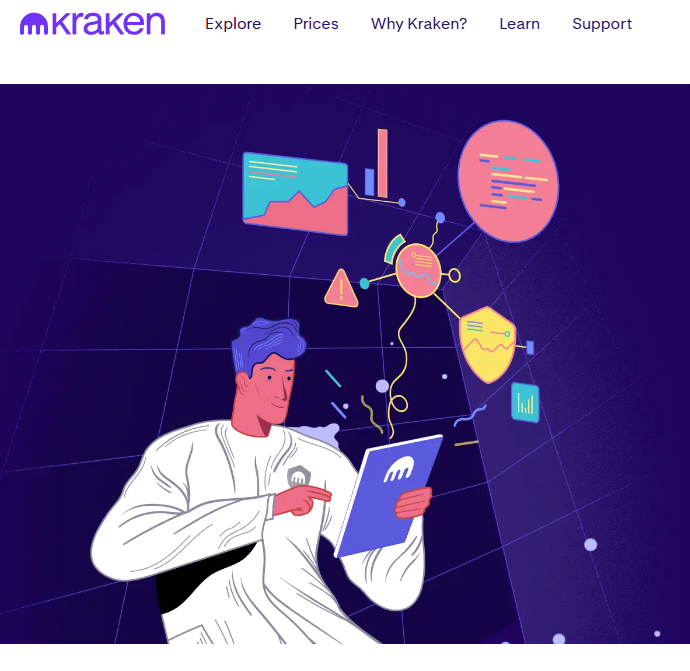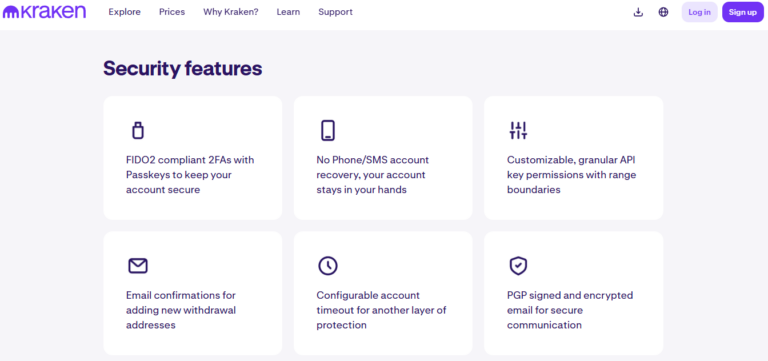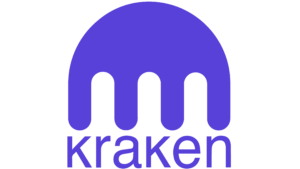Is Kraken Safe in 2025? Security, Regulation & Trust Guide

Jerry Dennis is a pioneering figure in the blockchain and SaaS sectors, known for his visionary approach and transformative strategies. With over 15 years of experience in software development and technology innovation, Jerry has played a pivotal role in multiple successful startups before diving into the world of blockchain. His expertise spans from developing scalable solutions to advising on crypto-investment strategies.

With a background in software engineering and specialized expertise in cybersecurity, Samantha Lee co-founded b3i.tech alongside Jerry. She has been instrumental in developing robust blockchain architectures that prioritize security and efficiency.
Don’t invest unless you’re prepared to lose all the money you invest. This is a high-risk investment and you should not expect to be protected if something goes wrong. Take 2 mins to learn more.
Quick Answer:
Kraken is one of the safest crypto exchanges in 2025, with no history of hacks, strong regulatory oversight, and top-tier security features like cold storage and 2FA. It’s a trusted platform for both individual investors and institutions who prioritise asset protection and compliance.
In this post, I’ll walk you through everything I’ve personally learned about Kraken’s security, regulation, and reputation. From its cold storage policies and compliance track record to what real users (like me) experience daily.
In this review, I’ll walk you through everything you need to know about Kraken: it’s fee structure, supported coins, advanced trading tools, staking options, security measures, and how it compares to competitors.
What Does It Mean for a Crypto Exchange to Be Safe?
For me, it boils down to four key areas: how well the platform protects your assets, how transparent it is, how it handles regulatory compliance, and—often overlooked—how much control it gives you over your own security settings.
It’s not just about avoiding hacks (though that’s obviously important). True safety also means the exchange uses cold storage for crypto, encrypts personal data, complies with anti-money laundering laws, and gives you tools like two-factor authentication and withdrawal whitelisting. It means having clear terms, proactive communication, and a support team that’s actually reachable when things go sideways.
In short, a safe exchange gives you confidence not only in how they protect your money, but in how they operate as a business.

How Does Kraken Compare on First Impressions?
Now, I’ve used a lot of exchanges over the years but Kraken stood out to me early on. The moment I started using it, I could tell the focus was different. It wasn’t trying to be flashy or beginner-friendly for the sake of it; rather, I found that the platform was built like a fortress.
From the interface to the account security features, everything felt built for serious investors. And over time, Kraken’s reputation has only strengthened. It’s one of the few platforms I’ve stuck with long term.
How Is Kraken Protecting Your Crypto Assets?
Let’s start with the basics: more than 95% of all digital assets on Kraken are stored in cold wallets. And I’m not just talking about a single data center—they’ve distributed these wallets across multiple geographic locations with strict access controls. That’s huge. Cold storage like this keeps the bulk of user funds completely isolated from online threats.

On top of that, Kraken implements multi-signature wallet protocols. In plain English, that means no single person can move funds—not even internally. Everything from withdrawals to vaulting is handled with a layered system of permissions and security checks. I’ve enabled withdrawal whitelisting on my account, so even if someone managed to log in (which is unlikely), they still couldn’t send my funds anywhere without my pre-approved addresses.
How Secure Is Your Personal Account?
As someone who values control over their digital security, I’ve been impressed with the tools Kraken gives me as a user. Two-factor authentication (2FA) is a must, of course—but Kraken goes further than most. You can link it to an authenticator app, or better yet, use a YubiKey or hardware token. I opted for a hardware key early on and have never looked back.
Then there are session controls. I like that I can set auto-expiration timers and IP locking—so if someone logs in from a different location or leaves a session open too long, Kraken flags it or shuts it down. There’s also a “global settings lock” feature that prevents any changes to your security preferences without a special passphrase.

Does Kraken Invite Ethical Hackers to Test Its System?
This is one of the things that really solidified my trust in Kraken: they don’t just wait for vulnerabilities—they actively look for them. Kraken runs an open bug bounty program, which means ethical hackers are financially rewarded for reporting any flaws they find. That’s a smart move.
They also partner with cybersecurity experts and white-hat researchers who stress-test their systems on an ongoing basis. I appreciate that kind of transparency. It tells me they’re not just reactive—they’re proactive.
When it comes to asset protection, I’d say Kraken is easily one of the most secure exchanges I’ve ever used—and I don’t say that lightly.
Has Kraken Ever Been Hacked or Compromised?
In over a decade of operation, Kraken has never lost customer funds to a security breach. That’s incredibly rare in the crypto world, and one of the main reasons I still use the platform today. It’s seen its fair share of turbulence—like DDoS attacks and system slowdowns—but they’ve always been handled with transparency and professionalism.
There was an incident in 2022 where the platform experienced some latency issues. Rather than stay quiet or sugarcoat it, Kraken updated users in real time, owned the issue, and got things back on track without compromising anyone’s funds or data. That kind of communication is part of what builds long-term trust.

Is Kraken Regulated and Compliant with Global Standards?
One of the big things that gives me confidence in Kraken is how seriously it takes regulation. They’re not hiding in a legal grey zone—they’re registered and regulated in multiple major jurisdictions around the world.
In the US, Kraken is registered with FinCEN as a Money Services Business. In the UK, it’s recognised by the FCA as a cryptoasset firm. It’s also registered with AUSTRAC in Australia and licensed by Japan’s FSA—one of the strictest regulators in the world when it comes to digital assets.
That level of global compliance means Kraken has to follow anti-money laundering (AML) and counter-terrorist financing (CTF) rules, enforce robust Know Your Customer checks, and keep detailed transaction records. As someone who prioritises transparency and trust, this makes a huge difference.
Does Kraken Follow KYC and AML Rules?
Definitely. When I first signed up for Kraken, the identity verification process was thorough, but not invasive. It’s a tiered system: the more features you want access to (like higher withdrawal limits or fiat deposits), the more you’ll need to verify.
Behind the scenes, Kraken uses some serious compliance tech to monitor transactions in real time. It’s the kind of setup you’d expect from a professional trading platform.
In my experience, Kraken has always struck the right balance between regulatory compliance and user privacy. It’s one of the reasons I continue to trust them with serious capital.
Does Kraken Offer Insurance or Safeguards for Your Funds?
Let’s get this out of the way first, No Kraken doesn’t offer full insurance on crypto assets. But it shoukld be noted that no major exchange does. It’s just not how the crypto industry is structured right now.
That said, Kraken does provide limited insurance coverage for assets stored in its hot wallets. These are the wallets connected to the internet and used for day-to-day operations—so naturally, they’re the most vulnerable to attacks. While the majority of funds are kept in cold storage I appreciate that Kraken has some level of protection in place for the small portion that remains online.
I’ve always seen this approach as realistic: they’re upfront about what’s covered and what isn’t, which I prefer over marketing spin.
What About Fiat Currency?
When you deposit fiat—like USD, EUR, or GBP—Kraken keeps that money in segregated accounts with well-established banking partners. That means your cash is completely separated from the company’s own operating funds.
In practical terms, even if something were to happen to Kraken as a business, your fiat wouldn’t be used to pay off creditors. That type of segregation is standard for regulated financial platforms, and it’s one of the key reasons I’m comfortable keeping some fiat on Kraken for trading purposes.
What Other Fees Should You Expect?
There are a few other charges to keep in mind. Crypto withdrawal fees vary by asset—Bitcoin is about 0.00015 BTC, and Ethereum’s usually a bit higher due to network costs. I’ve found these to be competitive with other major exchanges.
Fiat deposits and withdrawals (in USD, EUR, or GBP) can sometimes come with banking charges, depending on your method. I usually fund via bank transfer to keep costs low.
Lastly, if you’re funding in a currency different from your account’s base (say, sending GBP into a USD wallet), Kraken applies a 0.25% FX conversion fee. It’s fair, but something to be aware of if you’re trading across multiple fiat currencies.
What Risks Should You Be Aware Of as a Kraken User?
No matter how secure an exchange is, there are always risks that fall outside their control, and Kraken is no exception. Over the years, I’ve seen far too many people lose access to their accounts not because the platform was hacked, but because they fell for phishing scams or had their phone numbers hijacked in SIM-swap attacks.
Kraken does a great job locking down their end of things, but they can’t stop you from clicking a fake email link or entering your credentials on a spoofed website. They also can’t save you if you’re reusing weak passwords across multiple sites—or worse, if your phone gets compromised and someone hijacks your 2FA.
And yes, fake Kraken apps do exist. If you’re not downloading directly from official sources, you’re opening yourself up to serious risk. I’ve seen it happen.
How Can You Maximise Your Security on Kraken?
This is where personal responsibility kicks in and Kraken gives you the tools to stay protected.
For starters, I highly recommend enabling 2FA, ideally with a hardware security key. I’ve also activated withdrawal address whitelisting so even if someone got into my account, they couldn’t move funds without my explicit pre-approval.
I always make sure I’m on the official Kraken website (look for HTTPS and the correct URL), and I avoid using public Wi-Fi for logins. And for long-term crypto holdings, I don’t leave them on any exchange—I move them to a hardware wallet where I control the keys.
Kraken gives you the framework, but staying secure ultimately comes down to the habits you build.
How Do Real Users and Institutions Rate Kraken’s Safety?
Platforms like Trustpilot, Reddit, and Twitter are full of candid feedback, and what stood out to me was the consistency: most users praise Kraken’s uptime, reliability, and strong security track record.
Of course, not every review is glowing. The most common complaints I’ve come across relate to customer support delays, especially during periods of high market activity. But that’s pretty standard across the industry. What you don’t see are reports of people losing funds due to breaches or security failures—and that’s rare in the crypto world.
I’ve personally never had an issue with account security or suspicious activity. That peace of mind matters more to me than fast email replies.
Is Kraken Trusted by Serious Traders?
What really sets it apart for me is the fact that it’s never been hacked—not once in over a decade of operation. That alone is impressive.
But it goes deeper than that. Kraken is regulated in multiple jurisdictions, enforces strict AML/KYC protocols, and keeps more than 95% of client funds in cold storage. It’s not just secure on paper—it’s secure in practice. That combination of longevity, regulation, and strong technical safeguards is rare in the crypto space.
If I’m moving serious capital or trading larger positions, Kraken is one of the few platforms I genuinely trust.
When safety is your top concern, Kraken continues to lead the pack, especially if you’re looking for a well-regulated platform with a clean security history.
Final Verdict – Is Kraken Safe to Use in 2025?
After years of testing, trading, and holding assets across different platforms, I can say with confidence that Kraken is one of the safest crypto exchanges you can use today.
It has a stellar track record—zero customer fund losses, even during a decade marked by exchange hacks and market chaos. Combine that with strong regulatory oversight, airtight security architecture, and a proactive compliance culture, and you’ve got a platform that genuinely earns its reputation.
Whether you’re a casual investor or managing serious capital, Kraken’s security-first approach makes it a rock-solid choice. I personally keep a portion of my crypto there, and I’ve recommended it to friends and clients who prioritise safety over flash.
FAQs
No, Kraken has never suffered a breach resulting in the loss of customer funds. It has maintained a clean security record for over a decade, setting it apart from many other major exchanges.
Yes, Kraken is regulated by the FCA, FinCEN in the US, AUSTRAC in Australia, and the FSA in Japan. It follows strict KYC and AML rules globally to comply with local regulations.
Kraken does not provide full insurance on crypto holdings, which is standard across the industry. However, it has limited coverage for losses from hot wallet breaches and keeps the majority of assets in cold storage.
Enable two-factor authentication (preferably with a hardware key), whitelist withdrawal addresses, avoid public Wi-Fi, and use strong, unique passwords. For long-term storage, consider transferring crypto to a hardware wallet.
While Kraken is built with advanced traders in mind, its reputation for security and regulatory compliance makes it a reliable platform for beginners, especially those willing to take the time to learn how to secure their accounts properly.
References
- Kraken Security Practices – Kraken Support Center
- Kraken Bug Bounty Program – HackerOne
- FCA Registered Cryptoasset Firms – UK Financial Conduct Authority
- FinCEN Registration – U.S. Department of the Treasury
- AUSTRAC Digital Currency Exchange Register – Australian Transaction Reports and Analysis Centre
- Kraken Statement on 2022 Incident – Kraken Blog
Trade With Kraken Today
- Industry Leading Security
- Advanced Trading Tools
- Global Regulation and Transparency
Don’t invest unless you’re prepared to lose all the money you invest. This is a high-risk investment and you should not expect to be protected if something goes wrong. Take 2 mins to learn more.
Don’t invest unless you’re prepared to lose all the money you invest. This is a high-risk investment and you should not expect to be protected if something goes wrong. Take 2 mins to learn more.

